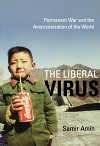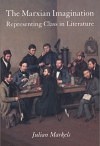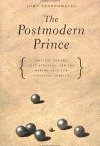Marxism
In this issue, we reprint Albert Einstein’s article “Why Socialism?,” from vol. 1, no. 1 of MR (May 1949). Normally this would require no comment on our part, as it has become something of an MR tradition to run this essay in our May issue. This year, however, there are two special circumstances that require some discussion. The first is Time magazine’s treatment of Einstein’s political views in its December 31, 1999, issue on “Albert Einstein: Person of the Century.” The second is the recent release, on the FBI’s web page, of Einstein’s FBI file to the general public | more…

Samir Amin’s ambitious new book argues that the ongoing American project to dominate the world through military force has its roots in European liberalism, but has developed certain features of liberal ideology in a new and uniquely dangerous form. Where European political culture since the French Revolution has given a central place to values of equality, the American state has developed to serve the interests of capital alone, and is now exporting this model throughout the world. American imperialism, Amin argues, will be far more barbaric than earlier forms, pillaging natural resources and destroying the lives of the poor. | more…
This space has, from its earliest years, been devoted to MR affairs, viewing the readers as part of a larger family. Recently, we began to use the space for commentary on political and economic developments also. The occasion of Paul’s 90th on April 10, however, calls for something very different. If you guess that this will be a love letter, you are not mistaken. I have long wanted to express publicly my feelings about Paul. A review of his contributions to knowledge and theoretical analysis about capitalism and socialism would require a long essay. I prefer to say a few words about him as my friend and comrade | more…
The Radicalism of Principle
Before the founding of Monthly Review, Paul Sweezy had been an instructor at Harvard and the author of germinal works on the American economy. But his teaching and writing were always accompanied by vigorous engagement with the political movements of the time: he helped organize the Harvard Teachers’ Union, taught economics at the leftist Samuel Adams School in Boston, and, in 1948, took a leading role in Henry Wallace’s presidential run on the pro-New Deal and anti-Cold War Progressive Party ticket in his home state of New Hampshire. As he often did, Sweezy combined his support of the Wallace third party challenge with his ongoing advocacy of socialism | more…
What follows is Paul Sweezy’s statement defying the New Hampshire Attorney General’s inquiry into his political views and associations, as it appeared in the U.S. Supreme Court’s decision in Sweezy v. New Hampshire, June 17, 1957 (354 U.S. 234).
—The Editors
In honor of Paul’s 90th birthday, we asked a number of people from different walks of life—trade unionists, radical activists, academics, and longtime friends—to write short tributes to Paul | more…
Utopian Vision and Working-Class Capacities
“A continental welfare state, modeled on the comparatively successfulsocial democracy of the United States. That’s the ticket. Do it the American way.” This recipe for what path Europe should follow isn’t the Economist calling for a new realism, or the voice of American imperialism talking through the Wall Street Journal, or even a stolen quote from a member of Tony Blair’s cabinet caught in private conversation. It’s the concluding lines of an article on an alternative for Europe published in the New Left Review, once the home and hope for a rejuvenation of creative Marxism | more…

Among the major Marxist thinkers of the period of the Russian Revolution, Rosa Luxemburg stands out as one who speaks to our own time. Her legacy grows in relevance as the global character of the capitalist market becomes more apparent and the critique of bureaucratic power more widely accepted within the movement for human liberation.… The Rosa Luxemburg Reader will be the definitive one-volume collection of Luxemburg’s writings in English translation. Unlike previous publications of her work from the early 1970s, this volume includes substantial extracts from her major economic writings—above all, The Accumulation of Capital (1913)—and from her political writings, including Reform or Revolution (1898), the Junius Pamphlet (1916), and The Russian Revolution (1918). | more…
Sean Sayers, Marxism and Human Nature (London: Routledge, 1998), 203pp., paperback
At a time when politicians, academics, and media pundits celebrate the demise of Marxism as a credible school of thought, and hegemonic “postisms” (e.g., poststructuralism, postfeminism, post-Marxism) have succeeded in producing a generation of young academics for whom everything (themselves included) is “socially constructed” and open to “deconstruction,” in an endless game of shifting identities and “stories,” a book about Marxism and human nature seems hopelessly outdated. It is, however, precisely at this time that this book should be welcome, not only because it is full of illuminating insights that dispel many common stereotypes about Marx and Marxism, but also (and most importantly) because it demonstrates how Marx’s theory of human nature, and its social and moral implications, offer a necessary alternative to the current “antinomies of bourgeois thought” (e.g., essentialism vs. anti-essentialism; humanism vs. antihumanism; determinism vs. social constructionism). (I have borrowed this phrase from Georg Lukacs in History and Class Consciousness.) | more…

The Marxian Imagination is a fresh and innovative recasting of Marxist literary theory and a powerful account of the ways class is represented in literary texts. Where earlier theorists have treated class as a fixed identity site, Markels sees class in more dynamic terms, as a process of accumulation involving many, often conflicting, sites of identity. Rather than examining the situations and characters explicitly identified in class terms, this makes it possible to see how racial and gender identities are caught up in the processes of accumulation that define class. Markels shows how a Marxian imagination is at work in a range of great literary works, often written by non-Marxists. | more…

The route to any coherent understanding of our time runs through the issues addressed in this collection of essays: the political meaning of Islam, the relation of the West to the Islamic world, the new form of imperialism signaled by the Soviet and U.S. occupations of Afghanistan, the intractable conflict over Palestine. In confronting these inescapable issues global power is being reshaped and the ends for which it will be used are being decided. | more…

John Sanbonmatsu’s Postmodern Prince is an work of political theory with a focus on questions of strategy. At the same time it provides an original and illuminating intellectual history of the Left from the 1960s to the present. It examines the politics of the New Left in the 1960s, showing how its expressivism led to political division and also prepared the ground for postmodernism. It shows also how the political economy of academic life in an increasingly commodified society strengthened the basis of postmodernism. | more…




